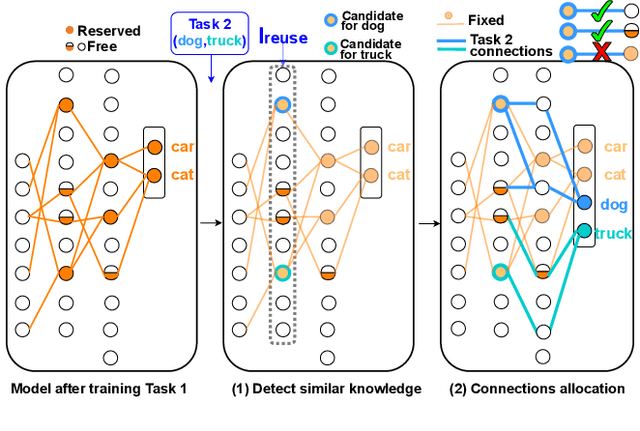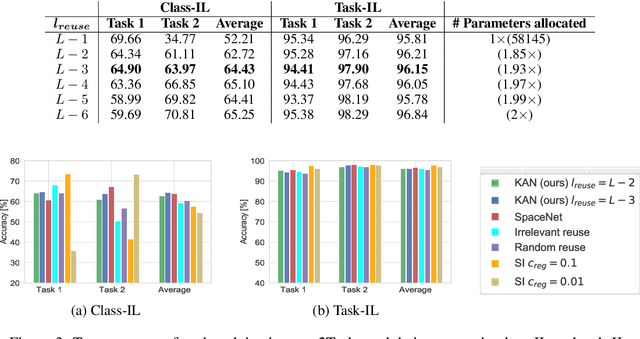Addressing the Stability-Plasticity Dilemma via Knowledge-Aware Continual Learning
Paper and Code
Oct 11, 2021



Continual learning agents should incrementally learn a sequence of tasks while satisfying two main desiderata: accumulating on previous knowledge without forgetting and transferring previous relevant knowledge to help in future learning. Existing research largely focuses on alleviating the catastrophic forgetting problem. There, an agent is altered to prevent forgetting based solely on previous tasks. This hinders the balance between preventing forgetting and maximizing the forward transfer. In response to this, we investigate the stability-plasticity dilemma to determine which model components are eligible to be reused, added, fixed, or updated to achieve this balance. We address the class incremental learning scenario where the agent is prone to ambiguities between old and new classes. With our proposed Knowledge-Aware contiNual learner (KAN), we demonstrate that considering the semantic similarity between old and new classes helps in achieving this balance. We show that being aware of existing knowledge helps in: (1) increasing the forward transfer from similar knowledge, (2) reducing the required capacity by leveraging existing knowledge, (3) protecting dissimilar knowledge, and (4) increasing robustness to the class order in the sequence. We evaluated sequences of similar tasks, dissimilar tasks, and a mix of both constructed from the two commonly used benchmarks for class-incremental learning; CIFAR-10 and CIFAR-100.
 Add to Chrome
Add to Chrome Add to Firefox
Add to Firefox Add to Edge
Add to Edge